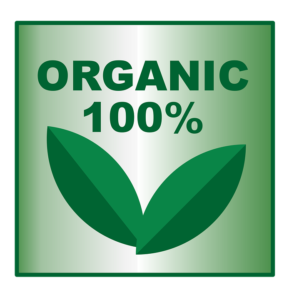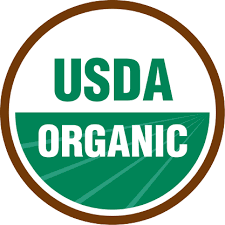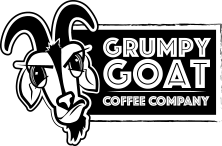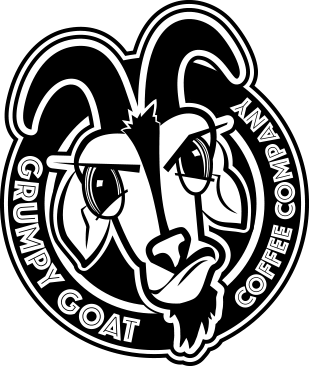How to Decipher Coffee Packaging Claims
Understanding the various labels and logos on your gourmet coffee package can be confusing. It’s ironic because the purpose of these symbols is to make it easier to identify coffee and other products that you can trust. Each image tries to tell you something about how the coffee was grown.
Packages of coffee you encounter may display one or more of a variety of badges or seals. Each symbol has a message. However, some are more meaningful but others are more for marketing purposes.
Fairtrade Certified
 Coffee packages displaying a Fairtrade badge means that coffee farmers and the producer groups they belong to are paid a minimum fairtrade price for their coffee to cover production costs.
Coffee packages displaying a Fairtrade badge means that coffee farmers and the producer groups they belong to are paid a minimum fairtrade price for their coffee to cover production costs.
Coffee is an unpredictable crop from season to season depending upon weather. Therefore, Fairtrade helps farmers sustain a more stable income stream, especially in developing countries.
In addition, a portion of the fairtrade revenue earned by the farmers is reinvested in production facility and community improvements.
Fairtrade International is probably the most well known fair trade label worldwide.
Fair Trade USA
 Similar to Fairtrade International, Fair Trade USA is an independent, nonprofit organization. This group certifies and labels products that adhere to standards for sustainable livelihoods for farmers and works to protect the environment.
Similar to Fairtrade International, Fair Trade USA is an independent, nonprofit organization. This group certifies and labels products that adhere to standards for sustainable livelihoods for farmers and works to protect the environment.
Coffee is the most popular fair trade product. However, Fair Trade USA also certifies several other commodities such as tea.
Fair Trade organization (FTO) and
Fair Trade Organic (FTO)
 Organizations focused on Fair Trade organizations (FTOs) abide by the Fair Trade principles. They are vocal advocates of producers. Also, FTOs raise awareness of Fair Trade issues. They actively work toward adherence to Fair Trade principles across all international trade practices.
Organizations focused on Fair Trade organizations (FTOs) abide by the Fair Trade principles. They are vocal advocates of producers. Also, FTOs raise awareness of Fair Trade issues. They actively work toward adherence to Fair Trade principles across all international trade practices.
As the global certification body for Fairtrade, FLOCERT is on a mission to assure fairness. They support companies in sourcing on Fairtrade principles, where no Fairtrade Standard applies. Also, FLOCERT helps producers, traders and brands build fair supply chains around the world.
Women Coffee Producers
 According to Cafe Imports, “as much as 70 percent of labor on coffee farms—planting, picking, processing, sorting—is done by women, though women’s legal representation as land owners and association members is distinctly lower,” ranging from only 5-20 percent.
According to Cafe Imports, “as much as 70 percent of labor on coffee farms—planting, picking, processing, sorting—is done by women, though women’s legal representation as land owners and association members is distinctly lower,” ranging from only 5-20 percent.
The Women Coffee Producers program intends to raise awareness of gender inequity and inequality issues in coffee-producing countries. In addition, the program financially empowers women growers. Coffee packages bearing a label referring to women producers are sourced from women in associations and cooperatives. This means a gender-equity premium is paid on top of the quality-based initial price of their coffee.
For example, in Mexico the population involved in coffee is more than 500,000 families. There is a growing percentage of women producers. Many of the women own or have inherited coffee farms. Purchasing coffee rewards women’s contributions. Buyers pay a premium to the women who contribute to the production. In turn, this premium is invested in projects within their communities and for the families.
Organic
 It is possible for a product to bear a label “Made With Organic Ingredients.” However, this does not qualify it to use the USDA Organic Seal (explained further below).
It is possible for a product to bear a label “Made With Organic Ingredients.” However, this does not qualify it to use the USDA Organic Seal (explained further below).
In this case up to 30 percent of agricultural or other allowable ingredients can be non-organic.
USDA Organic
 An organic label is just a label. The USDA Organic Seal is a privilege of certified products. The United States Department of Agriculture governs this labeling term.
An organic label is just a label. The USDA Organic Seal is a privilege of certified products. The United States Department of Agriculture governs this labeling term.
It refers to an agricultural product produced in accordance with the The Organic Foods Production Act of 1990. The USDA organic regulations cover four categories of products. Categories include crops, livestock, processed products and wild crops
To earn the right to display the USDA Organic seal, producers must abide by strict rules. Examples of these rules include sanitation, commingling and contact with non-organic products, pest, weed, and disease controls, soil fertility and much more.
Even if a product is certified organic in its country of origin it is recertified upon entry into the United States to ensure it meets USDA standards.
“Rainforest Alliance Certified” or “Bird Friendly”

![]()
Both “Bird Friendly” and “Rainforest Alliance Certified” seals inform consumers that the coffee maintains some habitat for birds. However, the Bird Friendly designation is a higher standard as established by scientists at the Smithsonian Migratory Bird Center.
These certifications require farmers to maintain or restore a sufficient amount of canopy cover. This cover approximates a “forest-like” environment. In addition, these designations prohibit harmful pesticides, which limit prey for birds.
Shade Grown
 When you see a “shade-grown” label on a package of coffee it can refer to a variety of growing conditions that are conducive to protecting migratory songbirds.
When you see a “shade-grown” label on a package of coffee it can refer to a variety of growing conditions that are conducive to protecting migratory songbirds.
Deforestation is presenting an ecological disruption in some coffee growing regions. As a result, shade-coffee farms established within areas with a natural forest canopy are diminishing.
This trend is affecting several species of North American birds. This means they now have fewer options of places to migrate for the winter.


